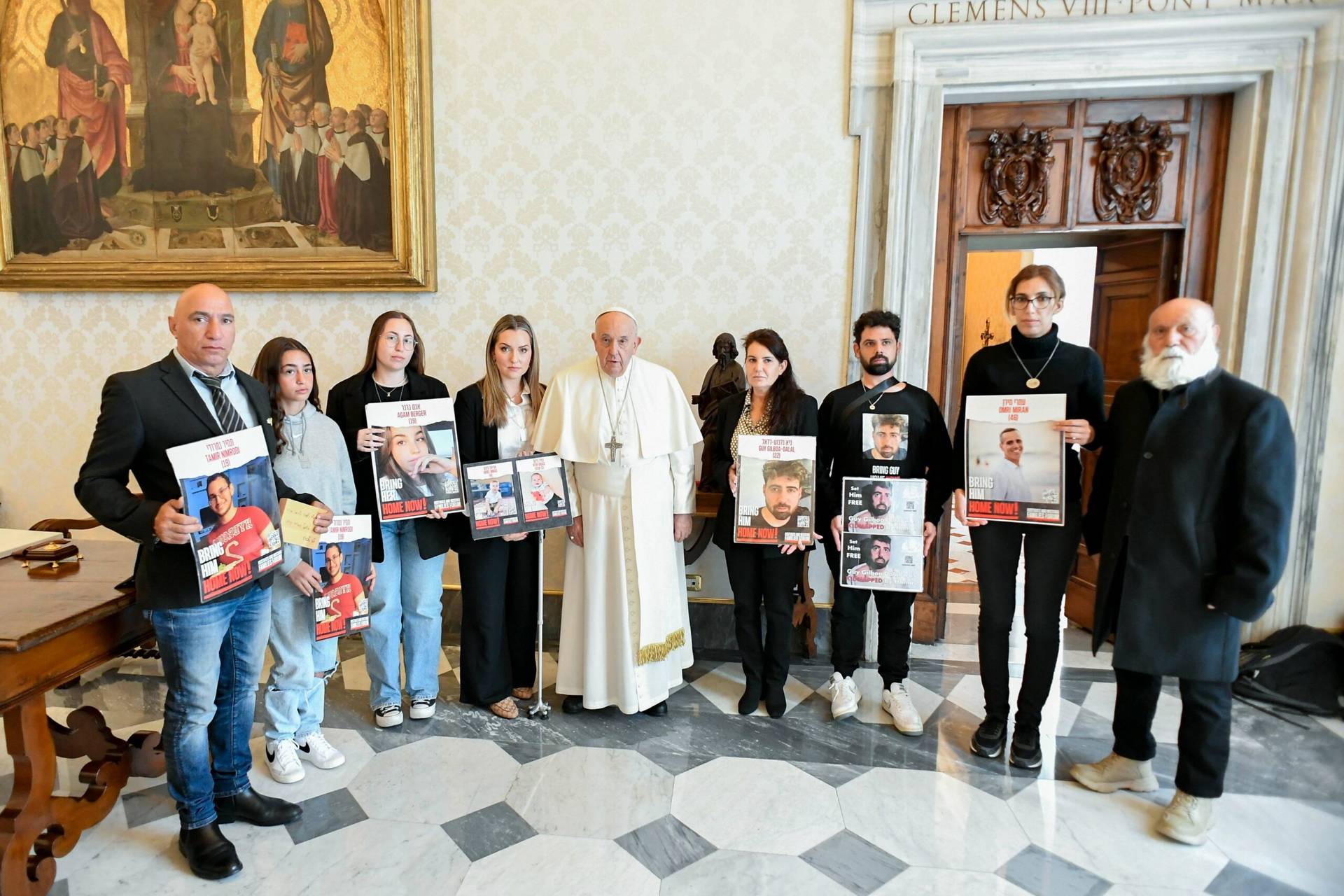ROME – Speaking to oil company executives, Pope Francis on Friday said that climate change “threatens the very future” of humanity, adding that the “doomsday predictions” can no longer be met with disdain.
“Time is running out!” Francis said. “Deliberations must go beyond mere exploration of what can be done, and concentrate on what needs to be done. We do not have the luxury of waiting for others to step forward, or of prioritizing short-term economic benefits.”
“The climate crisis requires our decisive action, here and now and the Church is fully committed to playing her part,” he said.
This is the second year that oil executives have gathered in Rome at the invitation of the Vatican’s Dicastery for Integral Human Development and Notre Dame University’s Mendoza College of Business. The theme of this year’s meeting is “The Energy Transition and Care for our Common Home.”
Francis quoted his environmental encyclical Laudato Si’, saying, “For too long we have collectively failed to listen to the fruits of scientific analysis and ‘doomsday predictions can no longer be met with irony or disdain’.”
“Any discussion of climate change and the energy transition must be rooted then in the results of the best scientific research available today, letting them touch us deeply,” he added.
Quoting a report from the United Nations Intergovernmental Panel on Climate Change, Francis noted that the world has a decade or so to guarantee that global warming causes temperatures to rise no higher than 1.5 C above pre-industrial levels, a threshold outlined in the 2016 Paris Agreement.
“Faced with a climate emergency, we must take action accordingly, in order to avoid perpetrating a brutal act of injustice towards the poor and future generations,” he said. “We must take responsible actions bearing in mind their impact in the short and in the long term.”
According to Francis, “courage” is needed to confront climate change, and action is needed because it is the poor who are the most vulnerable to hurricanes, droughts and floods. But the crisis, he argued, must also be confronted in favor of future generations, that stand to inherit a “greatly spoiled world.”
The June 13-14 meeting was focused on three points: A just transition; carbon pricing; and transparency in reporting climate risk.
“Such a transition involves managing the social and employment impact of the move to a low-carbon society,” Francis said. “If managed well, this transition can generate new jobs, reduce inequality and improve the quality of life for those affected by climate change.”
On carbon pricing, the pontiff said that humanity is called to use natural resources “wisely,” and their use can only be considered ethical when the economic and social costs of using them are transparently acknowledged and “are fully borne by those who incur them, rather than by other people or future generations.”
On transparency in reporting climate risk, Francis said that this is in the common interests of all humanity.
The pope concluded by saying that even though time is running out, it’s still possible to avoid the worst impacts of climate change, as “human beings, while capable of the worst, are also capable of rising above themselves, choosing again what is good, and making a new start.”
Among those participating in the Rome summit were the CEOs of Royal Dutch Shell, Occidental Petroleum Corporation, Repsol, Chevron, ExxonMobil, Equinor and Eni. At the end of the meeting, they signed on the statements on the importance of carbon pricing toward the reduction of emissions, and the necessity for disclosures to provide clear information on strategies and actions, governance process and performance regarding climate change.
“As leaders in the energy sector, the global investment community and other organizations, we recognize that a significant acceleration of the transition to a low-carbon future beyond current projections requires sustained, large-scale action and additional technological solutions to keep global warming below 2°C while advancing human and economic prosperity,” the statement reads.
Follow Inés San Martín on Twitter: @inesanma
Crux is dedicated to smart, wired and independent reporting on the Vatican and worldwide Catholic Church. That kind of reporting doesn’t come cheap, and we need your support. You can help Crux by giving a small amount monthly, or with a onetime gift. Please remember, Crux is a for-profit organization, so contributions are not tax-deductible.

















